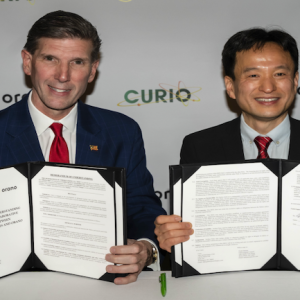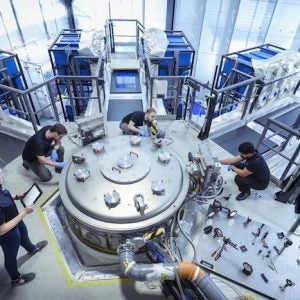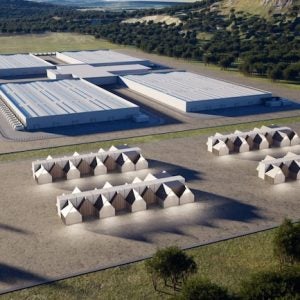 Bulgaria’s Nuclear Regulatory Agency (BNRA) says the management of the Kozloduy NPP has failed to provide all the required documents needed to justify replacing Russian nuclear fuel with fuel from US-based Westinghouse.
Bulgaria’s Nuclear Regulatory Agency (BNRA) says the management of the Kozloduy NPP has failed to provide all the required documents needed to justify replacing Russian nuclear fuel with fuel from US-based Westinghouse.
Kozloduy NPP applied BNRA in July for a licence to use fuel supplied by Westinghouse. Currently the two VVER-1000 reactors at Kozloduy (units 5&6) use fuel from Russia’s TVEL. In December 2022, Kozloduy and Westinghouse Electric Sweden signed the contract for the supply of fuel for unit 5 as Bulgaria seeks to diversify its sources of fuel supply in line with European policy. This came after the Bulgarian National Assembly passed a resolution to accelerate finding a replacement for Russian fuel.
Kozloduy NPP requested a licence to use Robust Westinghouse Fuel Assembly (RWFA) fuel. The application comprised 80 documents totalling 8.400 pages, “mainly technical documents and safety analyses”. The RWFA fuel is designed for use in VVER-1000 reactors and has been in use in six VVER-1000 units in Ukraine since 2018. The RWFA design is an evolution of Westinghouse's previous VVER-1000 fuel design, WFA, which was first introduced as lead test assemblies in South Ukraine unit 3 in 2005 but which damaged the reactor and had to be removed.
In early August, BNRA completed verification of the legality of Kozloduy’s application for the phased transfer of unit 5 to operating with the RWFA fuel. However, during the audit, it was found that the NPP had failed to provide two documents related to analyses, assessments and calculations important for ensuring safety. Without these, BNRA said it cannot assess the impact of the proposed changes on safety. The agency gave the NPP management until 15 October to provide the missing documents.
NRA has now signed agreements with France’s Institute for Radiation Protection & Nuclear Safety (IRSN – Institut de Radioprotection et de Sûreté Nucléaire) and a Czech-Ukrainian consortium to conduct an external review of selected safety analysis reports for the licensing the new fuel. IRSN will conduct an examination of 20 reports that cover, among other things, safety analysis related to the fuel life cycle; analysis of fuel behaviour in the event of an accident; analysis of nuclear safety assurance during transport and technological operations; and fuel conservation. The task of the Czech-Ukrainian consortium is to check the report on the compatibility of new nuclear fuel with the control system inside the unit 5 reactor.
The Czech-Ukrainian consortium comprises ES Group Europe (Czech Republic), the State Scientific & Technical Centre for Nuclear & Radiation Safety (SSTCNRS – Ukraine) and Energy Safety Group Ltd (Ukraine). ES Group Europe provides services to foreign partners in the field of nuclear energy on the Ukrainian market. SSTCNRS was established in 1992 to provide scientific and technical support to the State Nuclear Regulatory Inspectorate of Ukraine (SNRIU). Energy Safety Group implements projects at energy sites in Ukraine, Czech Republic, Bulgaria, Hungary, Slovakia and Armenia.
Image: Kozloduy nuclear power plant (courtesy of Rosatom)






